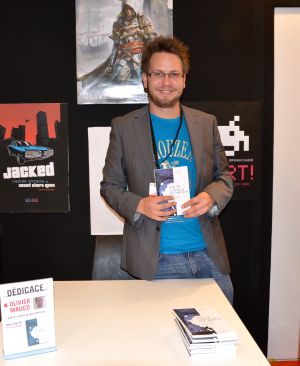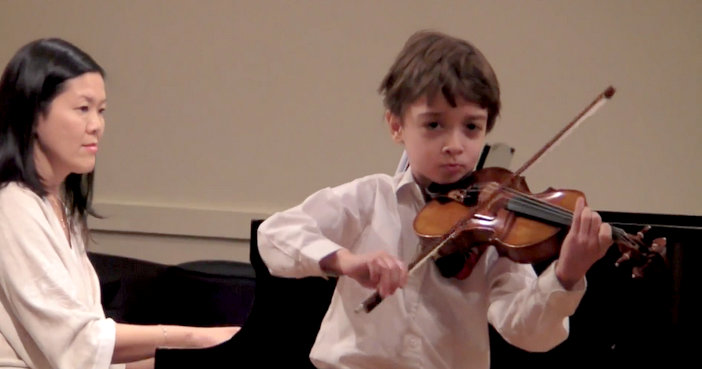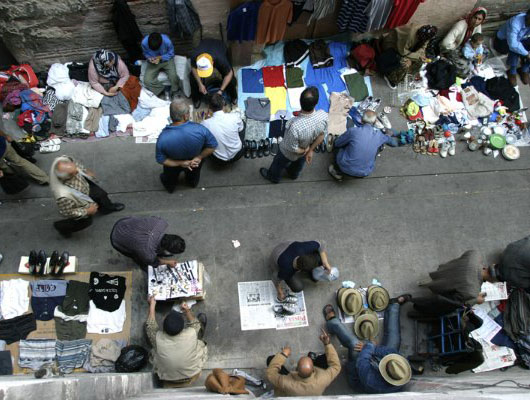An interview with Olivier Mauco, political scientist and concept consultant in video games who released a book on Grand Theft Auto, about the relations between video games and literature, politics and the Gezi Movement.
VOLKAN EKE
volkan.eke@gmail.com
We interviewed Olivier Mauco, political scientist and concept consultant in video games who came to Istanbul within the scope of conferences as part of Istanbul Tanpinar Literature Festival. Mauco who had been working on the social and political dimensions of video games for quite some time, recently published his academic work on Grand Theft Auto 4 entitled GTA IV: L’envers du Rêve Américain (“GTA IV: Wrong Side of the American Dream”).
- The conference of last week was focusing on the relation between literature and video games. What do you think this relation is?
 Games and literature are apparently quite different. People who don’t play thinks that games are more similar to movies. They only see the visual dimension of games. But in fact the very act of playing is closer to reading and writing.
Games and literature are apparently quite different. People who don’t play thinks that games are more similar to movies. They only see the visual dimension of games. But in fact the very act of playing is closer to reading and writing.
Literature has been defined as a space by some theorist (Michel Foucault, Umberto Eco). Utopia is the perfect genre showing how of space can structure a narrative in literature. It was a classical theme and served political discourse.
What differs in games is the language used. In games, you’ll write the story through the process given by the game design (the gameplay loops, the scoring system). Because of interaction, what you do appears on screen. This point is the main difference: through the act of gaming, the imagination is derivated into a system of signs. You compose with what is allowed by the software, the datas encoded (what we call the assets).
Moreover, literature is a source of inspiration for creators. Patrice Désilets told us how important was Dumas’ Monte Cristo for Assassin’s Creed 2. Atlas Shrugged, one of the teenage best-sellers in USA, was a clear inspiration for Bioshock. Moreover, through books, creators get information. You have also a lot of text in games.
- We are witnessing a proliferation of political and scientific interest in games. Why and how politics is interested in video games? Why are games seen as a “problem” (violence, addiction etc.) to begin with?

The effects theories are classical ones as a new medium emerge. Popular romance was credited to turn wives crazy in the XIXth century. Dime novels in Victorian Age were accused of criminalizing the youngest, etc. The fascination for game effects come from the novelty and the incomprehension of the immersion process. How can people get so involved in a fiction?
With videogames, the year 1993 had been a dramatic one with Doom and Mortal Kombat : Massive commercial success and visual violence marketed through advertising to the teenager. US Congress started hearings and forced the industry to establish the ESRB. One the main framing was considering videogames as the future of film. So the effect theories were imported from the ones accusing movies. Addiction is another point, it deals with excessive practice of MMORPG – psychologist found that games do not turn you addict, but addiction is a symptom of psychological pathologies. Moreover, there is also a kind of parent’s irresponsibility: If your child can’t obey, it is because he is an addict. As games do not provoke school shooting or turn you addict, these kinds of discourses are what we call causal stories : explaining with causal relations a case with a huge emotional content. Clinton made it in 99 after the Littleton school shooting and accuse videogames and popular culture as responsible. It is always a matter of power: reassuring the state power by saying he will act (ex: controlling video games) or the parents (psychological control of a cultural practice).
But things are changing. In France, if we’ve been struggling to change mentalities, just few days ago our culture ministry recognised video games as art.
- Is such a problematisation within the confines of political and scientific discourses sufficient to grasp the complexity of video games - especially with regards to the connection with literature?
Most studies or politics are not interested in games but only focus on gamers – who are also citizens. This myopia on games complexity leads unfortunately to bad scientific studies and reductionism.
Games must be treated as they are: A fictional work, a technical dispositive, a system of rules and actions, a good within a global market, a financial investment, a cultural artifact, but also a pleasant amusement and a powerful discursive tool. For some it is just a pastime but for others it is quite a way of life because of the centrality of games in youth culture.
- The conference was examining the connection to literature specifically through the theme of “city” in games. How does the city emerge in games?
Hard question. In games cities are the scene of action, the setting of a story and an interesting playground. It is familiar to most gamers, and producing even a generic city is a way to capitalize on their everyday life. It is the same with Ahmet Umit’s book on Istanbul, it talks to Istanbulites. The difference is that games are for a global market.
Do not forget that one massive turn in the game industry is the early 80s, when games where domesticated, from arcade halls to the living room. Also, the core public became the adolescent, middle class white occidental, living in suburbs. This figure didn’t really evolve, and so the attachment to the city.
Moreover, most of the other cultural production accord a large place to the city; movies, literature, etc.
- Another theme frequently featured in games alongside the city seems to be “power”. Games are usually considered to be empowering the gamer through a number of mechanics. You have recently published your in depth work on Grand Theft Auto IV which is a game that gives plenty of mechanics to the gamer to play with the city. What do you think coincides city, politics and power in game narratives, especially in GTA?

To understand the discourse in GTAIV, you have to think about it as a cross-over between a classical utopia and and initiation novel. Liberty City is a promise, with at its center the American dream in Star Junction surrounded with marginal places, with poverty, violence. The depiction is really satirical, everything is a pastiche. But Niko Bellic came to Liberty City to live the American dream. As he must help his cousin Roman (a gambler having issues with the mobs) he falls into crimes because of his familial and social obligations. So the player can never reach the American dream, moreover the city only allow self-made men to be violent.
 - During the Gezi Park protests, certain writings emerged that read 'You bullied the generation that beats cops in GTA!' and 'Six stars. Tanks will come.' What would you say that this is indicative of?
- During the Gezi Park protests, certain writings emerged that read 'You bullied the generation that beats cops in GTA!' and 'Six stars. Tanks will come.' What would you say that this is indicative of?
In many protests around the world these years you can see references to games. “Game over Mubarak” was one of the first one. This tells two things: Games are part of the culture. But games are also another way to apprehend the world, especially the power issues in democracies: as you experience power in games, you struggle to defeat a system, you fight for ideals (liberty, democracy, etc.). Games are idealistic as they make everyone equals: independently from your social belongings, you can be the best. The game tells you that everything is possible. The Credo in assassin’s creed is so true for games: noting is real, everything is possible. Surely it’s quite individualistic and avoids the social reality. But it is also a real empowering metaphor.
- Following the GTA example, let us turn to the latest instalment in the series. What does the fifth game’s fiction reveal about modern day politics?
The game is about transparency and democracy. Every themes deal with occidental quest for identity: from Silicon Valley gurus to sects. But also it criticizes how transparency is a big issue (after the WW2, the cybernetic considered that transparency is the key for peace). This quest for transparency makes the fictive government torture in order to get informations from a suspect. It is also a neo-liberal paradigm; information transparency is one of the 4 conditions for a perfect market. In the game, information is a real weapon for speculation. It resonates so much with the Wikileaks, Snowden revelations and NSA massive surveillance. And this subject concerns everybody who uses a computer or a cell phone – it is a global market perfect theme. That’s why GTAV content is to be really considered: it is not a stupid shooter, it is also an interesting author point of view of our modern world.

- Does this description of politics within the narrative of games allow us to examine the relation between politics and games from the other way around? In other words, why and how are the video games interested in politics?
Most games are not interested in politics. GTA is an exception. But the industry believes that politics could be dangerous as people could not like game content, first of all politicians (the fear of game regulation is really present). It is also an old marketing point of view considering games are just entertainment. But this situation will no longer continue to be the case as industry is about to face a huge crisis: Console blockbusters will be more and more expensive as the core public will not grow. There is a generation of gamers who wants games with contents and is tired of bad scenario, poor characters, or fantasy worlds. And non-gamers would be interested if games were able to talk to political, social and everyday life issues. Hollywood faced this entertainment crisis in the 60’s and the solution was producing films with content. The French nouvelle vague was a radical turn. The independent video game scene is really where the radical changes are coming from. Great classical game designers are tired of the industry and I believe some will make real games addressing political or social issues. With a larger public, you can have a national market, and so make them interesting for more people, and not only for consumers. There is this interesting initiative GDT jam: Turkish people produced games on the Gezi protests. People will use game to express their concerns. It already started.





